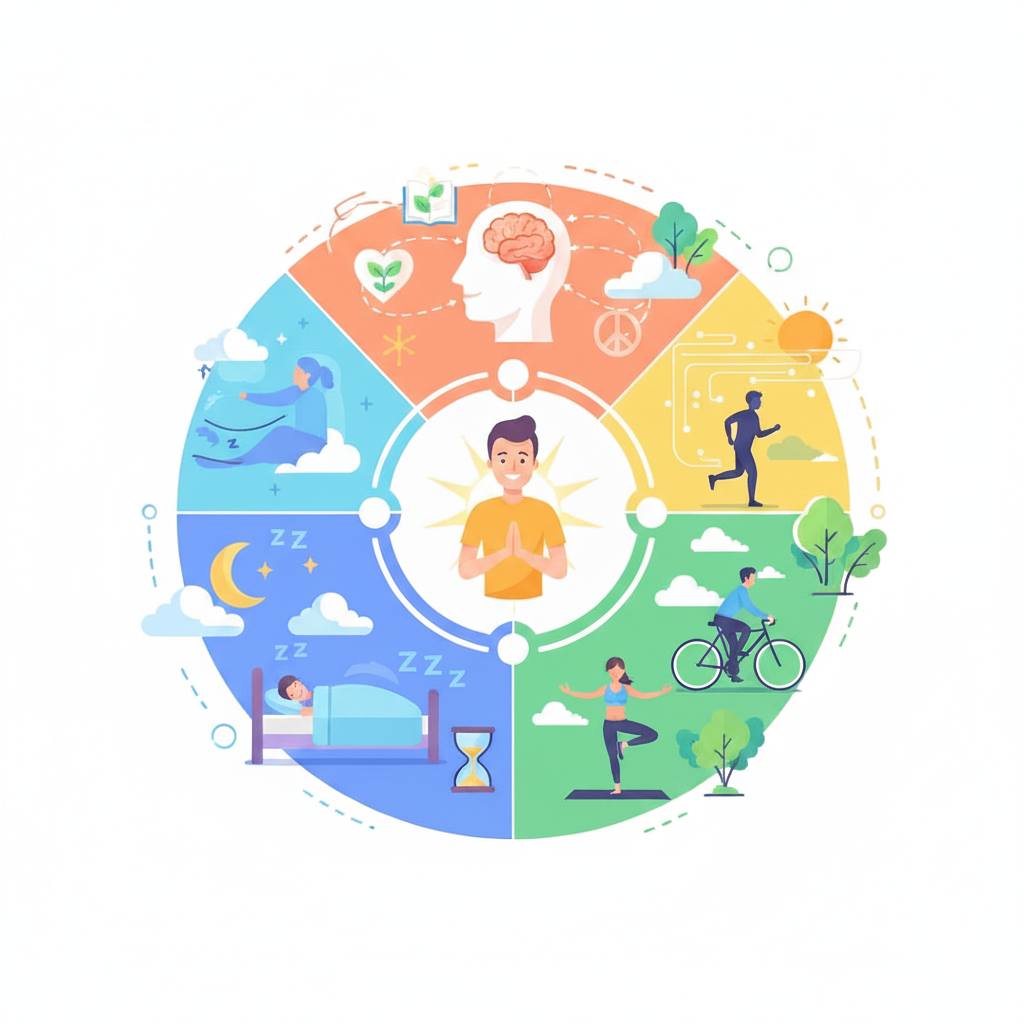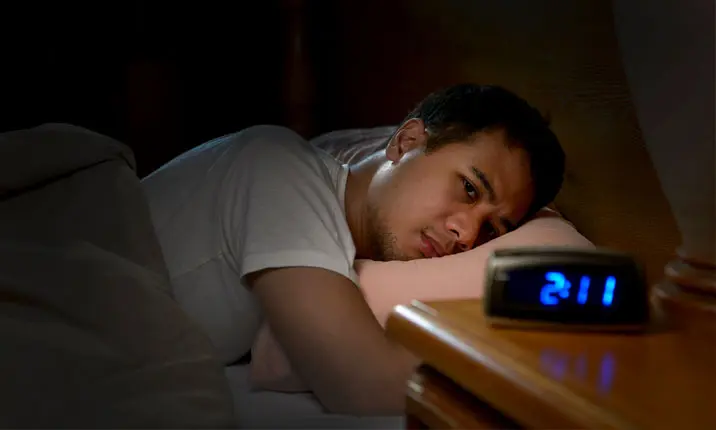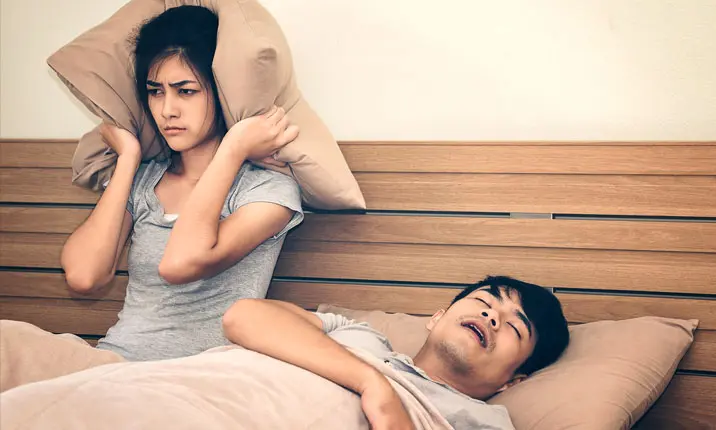The Importance of Sleep, Mental Health, and Exercise

When faced with the hustle and bustle of everyday life, don’t forget to take time for yourself. Here are some common mistakes that affect our sleep, mental and emotional health, and the quality of our physical activities.
In this article, we will discuss the importance of sleep, mental health, and staying physically active.
Let's Talk About Sleep
Are you getting enough sleep? Do you feel refreshed when you wake up? In fact, in a 2014 survey of 43 cities, Singapore ranked third among the most sleep-deprived cities, behind Tokyo and Seoul. In the more recent 2021 Global Sleep Survey, conducted by Philips on 13,000 adults across 13 countries, Singapore was ranked as the most sleep-deprived city after Japan, the United States, and the United Kingdom.
What Happens When We Don't Get Enough Sleep?
According to the National Sleep Foundation, adults need about 7 to 9 hours of sleep each night. Not getting enough sleep can lead to irritability, poor concentration, and an increased risk of making mistakes at work or, worse, driving accidents. It’s also linked to chronic health conditions like weight gain, high blood pressure, heart disease, and stroke.
Conditions That Affect Sleep Amount
In our increasingly connected world, the amount of sleep we get can be affected by constant distractions from digital devices like smartphones, or even an inability to disconnect from work. Other factors include a culture of longer work hours, exacerbated by working from home.
Conditions That Affect Sleep Quality
The most common conditions that affect sleep quality are chronic insomnia and obstructive sleep apnea.
In one local study, approximately 40% of patients with chronic insomnia were diagnosed with obstructive sleep apnea, while approximately 50% were diagnosed with a psychiatric comorbidity, with generalized anxiety disorder being the most common, followed by obsessive-compulsive disorder and depression or depressed mood.
Factors Affecting Sleep
- An environment that is not conducive to sleep
- Physical or medical conditions such as thyroid problems, or medical conditions that cause pain, itching, frequent urination, cough, and difficulty breathing.
- Medications, especially those with side effects such as frequent urination
- Substances such as caffeine, nicotine, and alcohol
What is Insomnia?
Insomnia is a condition in which people have difficulty falling asleep or staying asleep. They may also experience stress due to not getting enough sleep, which can make insomnia worse.
Possible factors that contribute to insomnia include:
- Poor pre-bedtime habits or improper sleep hygiene, such as using your bed to work, using electronic devices too much before bed, or eating a heavy dinner close to bedtime
- Psychological disorders such as anxiety and depression
- Problems with circadian rhythms due to shift work or jet lag
- Medical conditions such as thyroid disorders, or use of medications that cause frequent urination and the need to wake up at night to go to the bathroom
Talk to your doctor If you think you might be suffering from insomnia, you really don't need to continue to suffer the inconvenience of poor sleep.
Your doctor can evaluate your pre-sleep habits and advise you on how to practice good sleep hygiene, such as not using your laptop or phone close to bedtime, and making your bedroom a conducive space as part of your nighttime routine. Behavioral techniques, such as relaxation therapy, can also help improve sleep. In many cases, patients are prescribed medication for a short period of time to help with sleep.
What is Sleep Apnea?
Sleep apnea is a condition that affects the quality of sleep. Symptoms include snoring, and may be accompanied by periods of shortness of breath, choking, or stopping breathing (apnea).
Symptoms of sleep apnea include:
- Episodes of apnea, snoring, gasping for breath, or choking at night, often noticed by the partner
- Feeling excessively sleepy during the day, for no apparent reason.
- Feeling lethargic despite getting enough sleep
- Often have morning headaches, poor concentration, poor memory, and irritability
Risk factors for sleep apnea include:
- Increasing age
- Male
- Overweight or obese
- Underlying medical conditions such as diabetes and heart disease
Talk to your doctor if you suspect you have symptoms of sleep apnea. Your doctor may order a sleep study, in which your heart, lung, and brain activity, breathing patterns, and blood oxygen levels are monitored while you sleep. The condition is diagnosed if multiple episodes of interrupted breathing occur during your sleep.
Treatment includes weight loss, use of a CPAP (continuous positive airway pressure) machine while sleeping, and in many cases, surgery to correct airway obstructions during sleep.
Let's Talk About Mental Health
According to a 2016 national study, 1 in 7 people in Singapore have experienced a mental disorder in their lifetime. The most common conditions are major depressive disorder, alcoholism, and obsessive-compulsive disorder. More than three-quarters of them did not seek professional help for their condition.
During the COVID-19 pandemic, there has also been an increase in the number of people experiencing symptoms of depression and anxiety. According to the COVID-19 Mental Health Steering Committee Report (2020):
- 8.7% met criteria for clinical depression
- 9.4% met criteria for clinical anxiety disorder
- 9.3% met criteria for mild to severe stress
The biggest sources of stress include worrying about family or friends who may be infected with COVID-19, financial losses due to lost work opportunities or having to take unpaid leave, and unemployment.
What Are the Symptoms of Anxiety?
It is perfectly normal to feel stressed for short periods when we are running into deadlines or exams, but persistent and persistent anxiety that is unrealistic and often out of proportion to reality can be part of generalized anxiety disorder. If left untreated, this condition can interfere with the sufferer’s daily functioning and even affect their relationships with loved ones.
Signs of anxiety disorders include:
- Feeling insecure and/or irritable
- Feeling stressed
- Difficulty concentrating or paying attention to tasks
- Unable to control or stop worrying
- Difficulty sleeping
- Unrealistic view of the situation
- Uncertainty is unacceptable.
- Sometimes accompanied by panic attacks and/or feelings of hopelessness
Treatment for anxiety disorders includes psychotherapy and learning relaxation techniques. Medication may be prescribed if anxiety disrupts daily functioning and feelings of well-being.
What Are the Symptoms of Depression?
Depression is a long-term and chronic emotional disorder in which a person feels sad almost all the time, cries easily, and even feels hopeless.
Other signs of depression include:
- Unable to find interest in usual hobbies or activities you used to enjoy
- Feeling tired almost all the time
- Unable to concentrate or pay attention to tasks
- Having trouble sleeping
- Change in appetite, eating more than usual, or eating less than usual
- Feeling hot-tempered
- Have suicidal thoughts
To treat depression, your doctor may recommend lifestyle changes, counseling, and psychological interventions to help with symptoms. In some cases, medication may be prescribed to help with treatment.
Mental illnesses such as anxiety and major depression are covered under the Ministry of Health’s Chronic Disease Management Programme (CDMP) in Singapore. Eligible patients can use their MediSave to manage the costs of treating these chronic conditions.
Let's Talk About Mobility
The Singapore Physical Activity Guide 2022 recommends a minimum of 150–300 minutes of moderate to vigorous intensity physical activity per week, and participation in muscle-strengthening activities at moderate or vigorous intensity at least 2 days per week.
Physical activity improves brain health and reduces the risk of physical and mental illnesses such as anxiety and depression.
Tips to Get Active
It takes a little effort to get moving, but once you get into the swing of things, everything becomes easier!
Some tips to start being more active:
- Find out what motivates you
- Start slow and build momentum
- Find an activity you enjoy
- Get into a groove and keep it going
- Reward yourself regularly
-------------------------------------------------------------------------------------------
👉 Contact SunCare for medical support and advice as well as professional private jet transportation services 🇸🇬 SUNCARE PTE. LTD SINGAPORE
🏠 Add: 10 Anson Road, #10-11 International Plaza, Singapore 079903
☎️ Hotline: +65 96727717 (Dr. Lien Minh - Director) Zalo, Viber
📨 Email: suncarehealth@gmail.com









